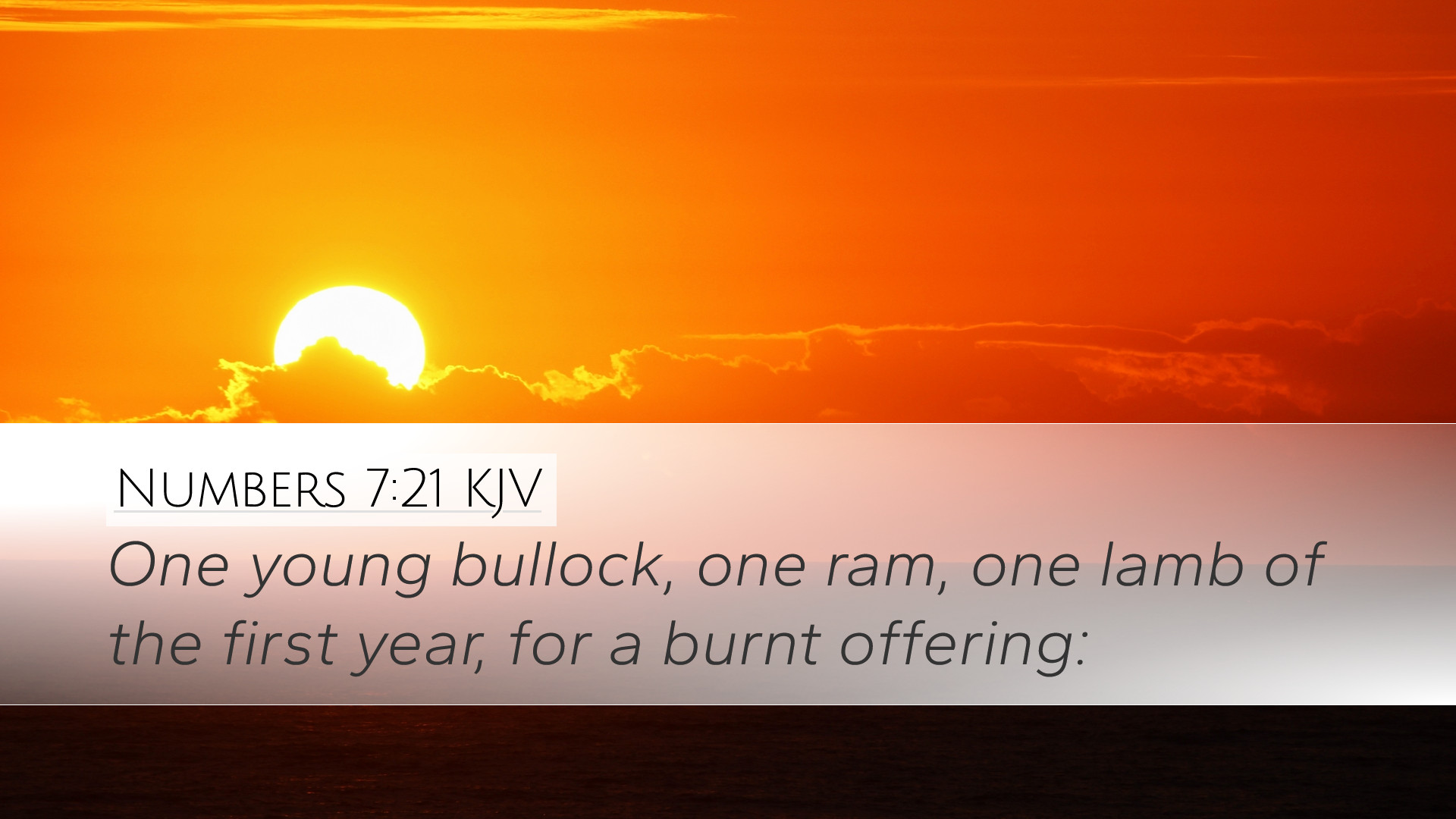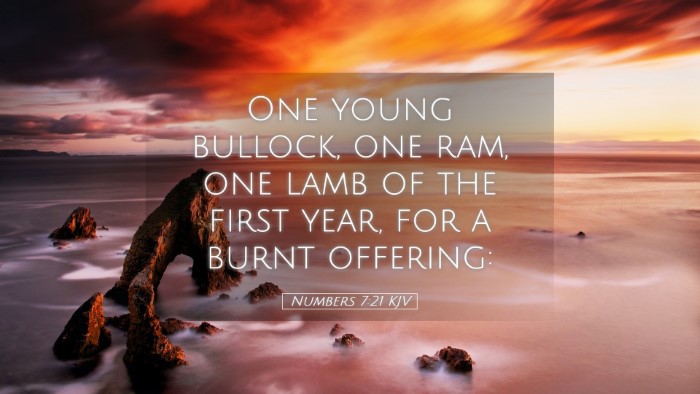Commentary on Numbers 7:21
Numbers 7:21 states:
"And he brought his offering before the Lord." (Numbers 7:21, ESV)
Introduction
This verse occurs within a significant context in the Book of Numbers, where the leaders of the tribes of Israel present their offerings to the Lord during the dedication of the altar. Each leader brings a gift, emphasizing the theme of devotion and obedience in the Israelite community. The offerings serve both practical and spiritual purposes, defining a communal relationship between the people and Yahweh. Here, we delve into various commentaries that provide insights into the meaning and implications of this text.
Context and Background
Numbers 7 records the meticulous offerings made by the chieftains of Israel during the inauguration of the Tabernacle, a pivotal moment in Israel's journey through the wilderness. Each tribe is represented, signifying unity and collective worship among the Israelites.
Matthew Henry's Commentary
Matthew Henry emphasizes the importance of this act of offering. He notes that each leader's willingness to come forward with their gifts reflects their understanding of the necessity of approaching God with reverence and gratitude. Henry points out that these offerings were not merely for show; they represent the leaders' hearts and an acknowledgment of God's sovereignty and provision.
Albert Barnes' Insights
Albert Barnes elaborates on the action of bringing an offering. He asserts that this act signifies a personal and communal commitment to honor God. The context of the gifts being presented underscores the importance of intentional worship. Barnes encourages modern believers to consider the motivations behind their offerings, whether material or spiritual, suggesting that they should arise from genuine devotion rather than obligation.
Adam Clarke's Perspective
Adam Clarke offers a detailed examination of the offerings themselves. He explains that in the ceremonial context of ancient Israel, these offerings were a critical aspect of covenant relationship with God. Clarke highlights the significance of each leader presenting their offerings individually but also as part of a collective initiative, illustrating a communal identity centered on worship. He calls attention to the order and structure of the offerings, revealing that God desires not only our gifts but also the manner in which they are given.
Theological Implications
This verse provides rich theological themes relevant to both ancient and contemporary contexts:
- Covenant Relationship: The act of bringing offerings represents the people's commitment to their covenant with God. It affirms their identity as His chosen people.
- Worship and Reverence: Genuine worship is founded in love and respect for God. The leaders model this by presenting their offerings willingly and joyfully.
- Community and Unity: The shared act of offering fosters unity among the tribes of Israel. It serves as a reminder that worship is not an isolated activity but a communal experience.
- Stewardship: Each offering indicates stewardship of the gifts God has provided. The leaders acknowledge that their possessions ultimately belong to God, a principle vital for believers today.
Practical Applications
Diving deeper into the implications of Numbers 7:21, we consider how it applies in modern contexts:
- Intentional Giving: Like the leaders in this passage, Christians today are called to offer their gifts—be they time, talents, or treasures—with intention and sincerity.
- Community Engagement: This verse encourages believers to engage with their faith communities actively. Worship should be a collective endeavor, enhancing bonds among members.
- Honor God in Worship: The act of bringing offerings should stem from a desire to honor God, not merely out of duty. Reflecting on motivations can transform the worship experience.
- Recognizing God’s Sovereignty: Just as the tribal leaders demonstrated respect for God's authority, believers are invited to recognize and affirm God's rule in their lives through their offerings.
Conclusion
Numbers 7:21, while seemingly simple at first glance, encapsulates profound themes of worship, community, and stewardship. The insights garnered from renowned commentaries by Matthew Henry, Albert Barnes, and Adam Clarke guide pastors, theologians, and students to unpack its significance within the broader narrative of Scripture. As we reflect on this verse, may we grow in our understanding and practice of offering our lives fully to God in every aspect.


